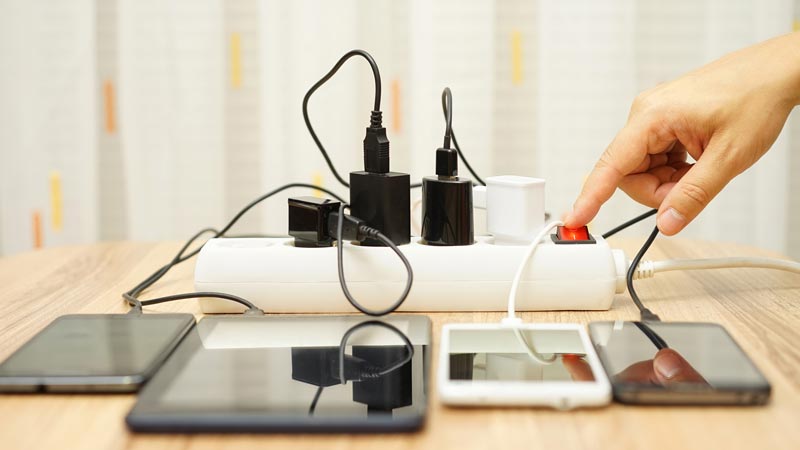Water, electricity, fuel, raw materials, food, heating

Maybe you’ve already noticed that Germans invest a lot of time and money in protecting the environment. That has now become an integral part of their everyday life, and indeed part of German culture. And that’s why it’s important to us at Deutschland-Begleiter.de to tell you about a few key aspects of this whole topic.
The resources we are talking about are mainly raw materials such as coal, gas, water, etc. On the one hand, these resources are finite; on the other hand, you can save a lot of money by using these resources as responsibly and sparingly as possible.
People who use resources sparingly are acting in the interest of their children and grandchildren, who have the right to live on a planet that’s still worth living on. This aspect ties in with Germany’s and Europe’s Christian roots: God has entrusted this planet to us humans, and we should act responsibly towards it.
Besides, the Bible says that we should share things with those who have less than we do. And you can only share things if you look after what you own carefully and responsibly. That’s why we recommend that you save resources wherever possible. If you do that, you will gain the respect of people here in Germany.
Saving resources: electricity and heating

Lots of ideas for saving electricity are simple, logical and probably what you’re doing already. For example, it is always a good idea to turn off a light when you don’t need it.
Using a kettle to boil water instead of boiling it in a pan on the stove consumes less electricity. And when cooking on an electric stove, it’s good to choose a ring that’s the same size as the pot or pan. Cooking with the lid on also saves energy. With most electric stoves you can turn off the ring at least three minutes before the end of the prescribed cooking time and the residual heat from the ring will complete the cooking process. Another way of saving electricity is to remove your charger from the socket when you’re not charging your smartphone, and to turn off your TV set at night rather than leaving it in standby mode.
We also recommend saving on heating. Of course you shouldn’t feel cold in your flat or room but sometimes it makes more sense to put on a warm pullover and slippers rather than turning up the heating. Why not ask somebody how your heating system works? Some radiators regulate the temperature automatically. And you can always turn down the radiator when you leave the house for a few hours.
Especially in winter, the air in your room can get stuffy and damp if you don’t open the windows from time to time. But it’s better to open the window(s) properly a few times a day for a couple of minutes than to have them slightly open all the time. But don’t forget to turn off the radiator when you open the windows wide and turn it on again when you’ve closed them.
Saving resources: water and chemicals

If possible, it’s better to wait until you have a full washing machine load before doing your washing. The same is true of the dishwasher. Try to avoid running the tap for any length of time; wash the dishes by filling the sink with hot water.
When you’re cleaning your teeth or taking a shower, you can save water by only letting the water run for as long as you really need it. Detergents, washing powder, washing-up liquid, shower gel and the like can be used sparingly. That is not only good for the environment but saves you money as well.
Food and other tips
Food is also a finite resource. Here, there’s no need to be unnecessarily frugal because in Germany everybody can have enough to eat—something we are very thankful for! But may we suggest that you only buy as much as you really need. Your local supermarket will be selling everything you need next week as well. And if possible, try not to throw away food.
If you want to learn more about saving resources, why not call in at one of Germany’s many Consumer Advice Centres: it’s known as a Verbraucherzentrale in German. Or talk to the person who told you about Deutschland-Begleiter.de.